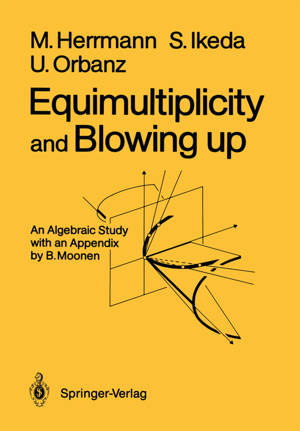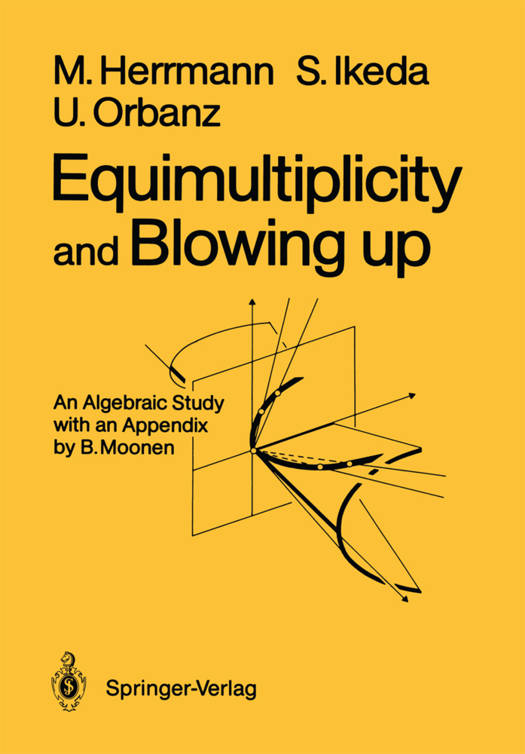
Je cadeautjes zeker op tijd in huis hebben voor de feestdagen? Kom langs in onze winkels en vind het perfecte geschenk!
- Afhalen na 1 uur in een winkel met voorraad
- Gratis thuislevering in België vanaf € 30
- Ruim aanbod met 7 miljoen producten
Je cadeautjes zeker op tijd in huis hebben voor de feestdagen? Kom langs in onze winkels en vind het perfecte geschenk!
- Afhalen na 1 uur in een winkel met voorraad
- Gratis thuislevering in België vanaf € 30
- Ruim aanbod met 7 miljoen producten
Zoeken
Equimultiplicity and Blowing Up
An Algebraic Study
Manfred Herrmann, Shin Ikeda, Ulrich Orbanz
Paperback | Engels
€ 83,95
+ 167 punten
Omschrijving
Content and Subject Matter: This research monograph deals with two main subjects, namely the notion of equimultiplicity and the algebraic study of various graded rings in relation to blowing ups. Both subjects are clearly motivated by their use in resolving singularities of algebraic varieties, for which one of the main tools consists in blowing up the variety along an equimultiple subvariety. For equimultiplicity a unified and self-contained treatment of earlier results of two of the authors is given, establishing a notion of equimultiplicity for situations other than the classical ones. For blowing up, new results are presented on the connection with generalized Cohen-Macaulay rings. To keep this part self-contained too, a section on local cohomology and local duality for graded rings and modules is included with detailed proofs. Finally, in an appendix, the notion of equimultiplicity for complex analytic spaces is given a geometric interpretation and its equivalence to the algebraic notion is explained. The book is primarily addressed to specialists in the subject but the self-contained and unified presentation of numerous earlier results make it accessible to graduate students with basic knowledge in commutative algebra.
Specificaties
Betrokkenen
- Auteur(s):
- Uitgeverij:
Inhoud
- Aantal bladzijden:
- 629
- Taal:
- Engels
Eigenschappen
- Productcode (EAN):
- 9783642648038
- Verschijningsdatum:
- 12/10/2011
- Uitvoering:
- Paperback
- Formaat:
- Trade paperback (VS)
- Afmetingen:
- 170 mm x 244 mm
- Gewicht:
- 1029 g

Alleen bij Standaard Boekhandel
+ 167 punten op je klantenkaart van Standaard Boekhandel
Beoordelingen
We publiceren alleen reviews die voldoen aan de voorwaarden voor reviews. Bekijk onze voorwaarden voor reviews.









